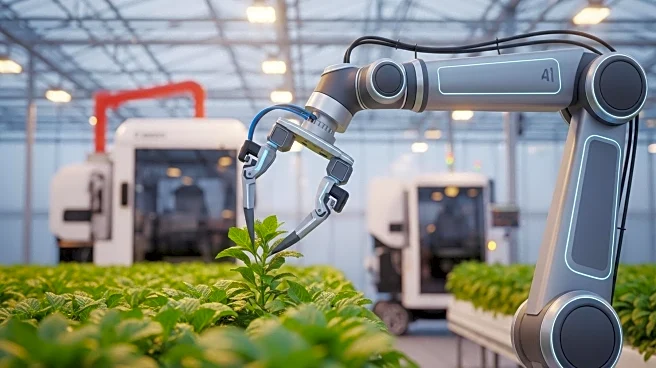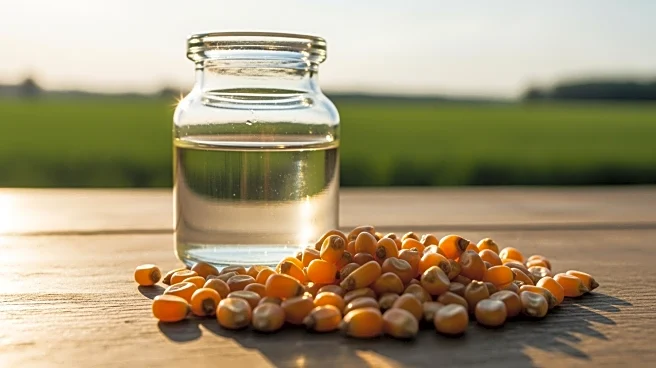What's Happening?
Saudi Arabia's agriculture market is expected to grow significantly, reaching a value of USD 207 billion by 2033, according to a report by IMARC Group. This growth is driven by a compound annual growth rate (CAGR) of 5.28% from 2025 to 2033. The market's expansion is attributed to the country's Vision 2030 initiative, which emphasizes sustainable agricultural practices and technological advancements. Key developments include AI-driven precision farming, smart livestock management, and automated crop monitoring systems. These innovations aim to optimize water usage, enhance food security, and reduce dependence on food imports. The Agricultural Development Fund has invested $220 million in high-tech greenhouses, and strategic partnerships with global firms are fostering a robust ecosystem for food production. Saudi Arabia's successful export of tomatoes to Europe in 2024 highlights its capability to produce high-quality crops through advanced farming techniques.
Why It's Important?
The projected growth of Saudi Arabia's agriculture market is significant for several reasons. It aligns with the country's Vision 2030 goals to diversify its economy and reduce reliance on oil revenues. By investing in sustainable and technologically advanced agricultural practices, Saudi Arabia is positioning itself as a leader in the global agriculture sector. The adoption of AI and IoT technologies in farming enhances productivity and efficiency, addressing challenges such as water scarcity and arid climate conditions. This growth also presents opportunities for U.S. agricultural firms to engage in strategic partnerships and export markets, potentially benefiting from Saudi Arabia's expanding food processing capabilities and demand for innovative farming solutions.
What's Next?
Saudi Arabia's agriculture sector is likely to continue its trajectory of growth and innovation. The government is expected to further invest in sustainable farming practices and technologies, aiming to achieve agricultural self-sufficiency. Future developments may include expanded export markets and increased collaboration with international agricultural firms. The establishment of the Jeddah Food Cluster and ongoing investments in high-tech greenhouses will support the Kingdom's ambitions to become a major player in global food production. As Saudi Arabia advances its agricultural capabilities, stakeholders such as farmers, technology providers, and international partners will play crucial roles in shaping the sector's future.
Beyond the Headlines
The transformation of Saudi Arabia's agriculture sector has broader implications for global food security and sustainability. The country's focus on eco-friendly farming practices and organic farming expansion reflects a growing trend towards health-conscious consumer preferences. This shift not only benefits domestic producers but also sets a precedent for other nations facing similar environmental challenges. The integration of AI and IoT technologies in agriculture could serve as a model for other countries seeking to optimize resource usage and enhance food production efficiency. As Saudi Arabia continues to innovate, it may influence global agricultural policies and practices, contributing to a more sustainable and resilient food system.









